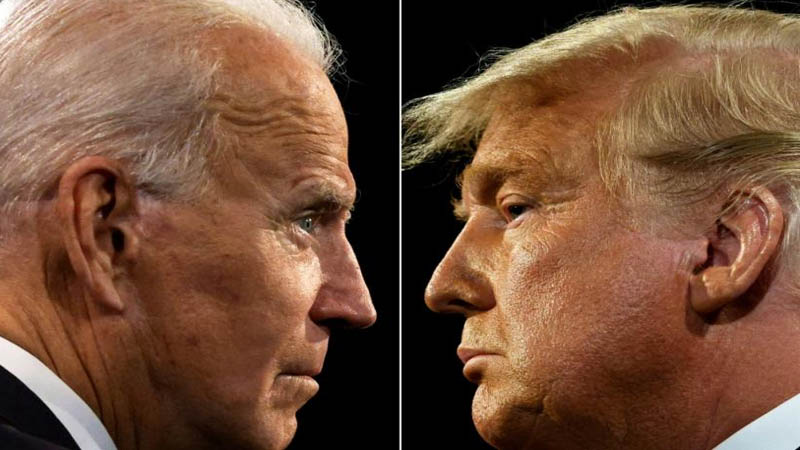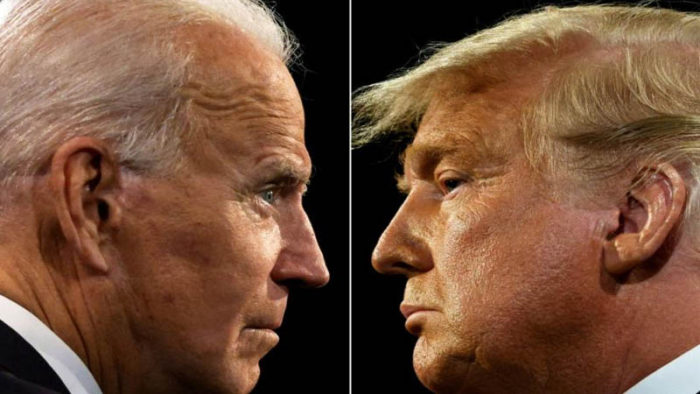Compared to Trump’s bullying behavior
Contrast this with a similar action undertaken by the Trump administration in early 2020 — the assassination of Iranian General Qassem Soleimani in Iraq.
Here, the US acted unilaterally and provided no forewarning to Baghdad. It also violated its ally’s sovereignty in a manner that damaged its domestic credibility and stoked Iraqi outrage.
The attack was deliberately provocative, brazenly killing an Iranian national hero in a manner that challenged the domestic legitimacy of the regime in Tehran. This forced a rapid Iranian response that could have easily spiraled out of control if not for pure luck.
The strike itself also lacked clear reasoning beyond the Trump administration’s ambiguous campaign of applying “maximum pressure” against Iran. Indeed, Trump officials made several contradictory justifications for the action, none of which were convincing. Combined with Trump’s personal gloating over the killing, this led to a widespread perception of illegality on the part of the United States.
And coming at a time when the Trump administration was trying to push Iran back to the negotiating table over its nuclear program, the strike had a little meaningful effect. It only served to undermine US credibility by showcasing Washington as a shortsighted bully.
Put simply, Biden’s recent airstrike was a wrap on the knuckles, designed to urge Iran towards a more constructive path of engagement with the U.S.
By contrast, Trump’s action was a wild slap in the face, designed to hurt and insult, but offering little credible way forward in the U.S.-Iran relationship.
Acting to restrain Saudi Arabia
Biden has also diverged sharply from Trump in his handling so far of Saudi Arabia.
By releasing U.S. intelligence linking Crown Prince Mohammed bin Salman to Khashoggi’s killing, Washington made it clear that its days of running interference for Saudi Araba’s own provocative actions were drawing to a close.
Similarly, Biden has also indicated that while he remains committed to Saudi national defense, he expects the kingdom to wind down its ruinous six-year war in Yemen and embrace a more progressive position on universal human rights.
Biden’s commitment to these ideals, combined with the increasingly anti-Saudi sentiment across the other branches of the U.S. government, suggests the president will have an extensive array of tools to punish the Saudis for their intransigence, should it come to that.
Obama’s more cautious approach
Biden’s divergences with the Obama administration in its Middle East policy are more subtle, yet just as important.
Generally speaking, Biden is considered to be the spiritual successor to Obama, his former commander-in-chief. But his own style, approach, and worldview differ in significant ways.
In the case of Iran, Biden has shown that unlike Obama, he is willing to use force within the wider context of multilateral negotiations, and is less dovish about the threats posed by potential Iranian reprisals.
Indeed, Obama was strongly averse to employing a “smart power” approach when it came to Tehran, worrying that any use of force would jeopardize diplomatic wrangling around the Iran nuclear agreement.
Such reticence was reflected in a number of major policy decisions by Obama in response to the norm-breaking activities of other states. This included his infamous walking back from the “red line” over Syria’s use of chemical weapons against its own people and his lack of response to Russian meddling in the 2016 U.S. election.
This inaction generated a perception of US passivity and risk adversity that emboldened its rivals and undermined the confidence of its allies.
While Obama was willing to rhetorically protest against Saudi provocations and human rights abuses, there was little serious effort on the part of the administration to materially curtail them.
Indeed, Obama oversaw what was at the time the largest-ever US arms sales to the kingdom and supported its war in Yemen, even after numerous high-profile atrocities came to light.
In contrast to Obama’s hypocrisy in Saudi Arabia, Biden appears to be gearing up to walk the talk. Not only is he using the bully pulpit of the presidency to call out bad behavior, but he has also enacted specific policies to discourage such activities.
A difference in styles
The key difference in the characters of the two presidents is boldness.
While deeply thoughtful and reflective, Obama was known at times for timidity and paralysis-by-analysis in foreign affairs. (This was in stark contrast to his decisive actions against terrorist and insurgent groups).
This left his administration with a track record of missed foreign policy opportunities, as he mulled the pros and cons.
Biden, by contrast, has a longstanding political history for calculated risk-taking. While he has not always been correct in his decisions, he is willing to back up his words with actions.
Biden fundamentally believes in the liberal international order and is willing to employ smart power to defend and reinforce it where he feels necessary. He will also not likely baulk from the hard realities and choices such an approach will inevitably bring.







